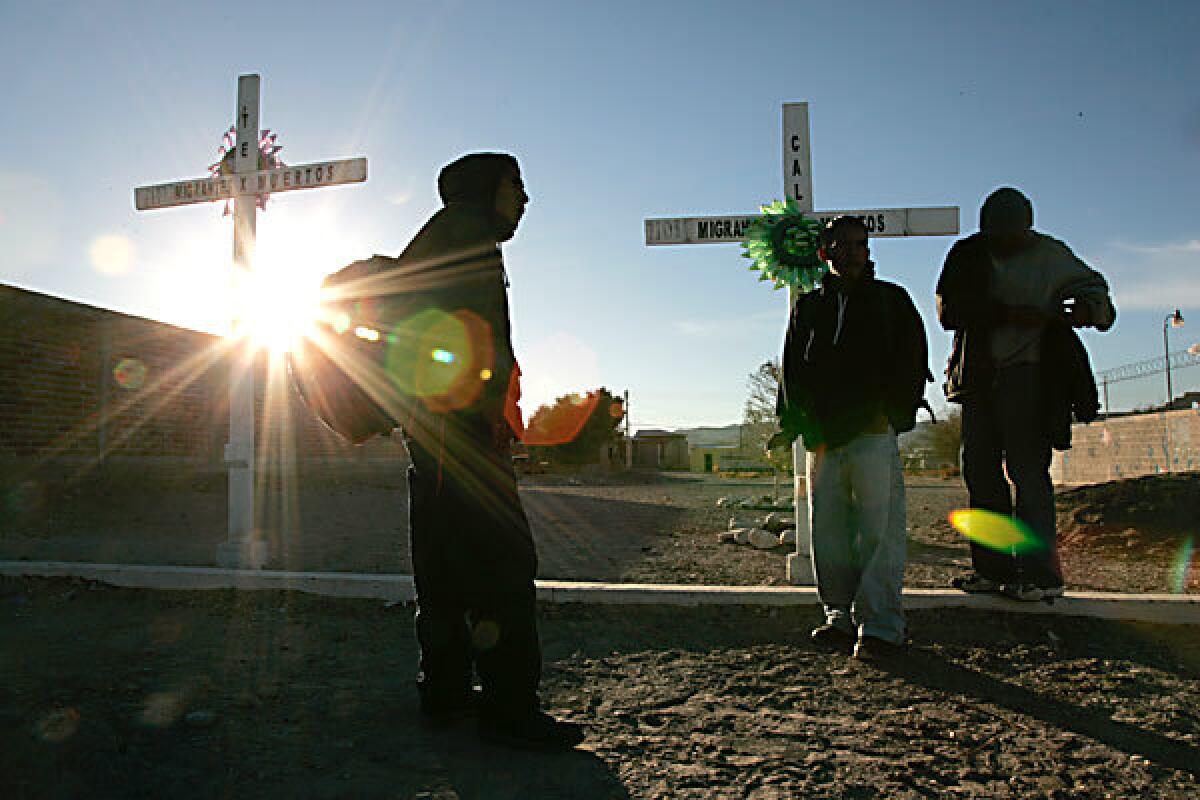Fewer bodies found on border, but Arizona prepares for deadly summer

Men at a memorial in Altar, Mexico, erected to honor migrants who have perished in the southern
- Share via
Reporting from Tucson — In southern Arizona, the heat reaches triple digits by June and the number of dead rise with it. Crossing the border in this stretch of desert has always been a dangerous proposition for immigrants trying to enter the country illegally.
For this reason, a recent drop in the number of bodies recovered along the border is not necessarily a sign that fewer people will die trying to cross into the United States in months to come, authorities say.
“Our busiest months are June, July and August,” said Gregory Hess, chief medical examiner in Pima County.
This year in April and May, the Pima County medical examiner’s office reported receiving just five bodies each month of people believed to be attempting to cross the border, down from the average of about 10 in each of those months in previous years.
The office has identified 33 bodies of people believed to be trying to cross the desert into Arizona this calendar year.
The number of remains found is considered just a fraction of the number of unrecovered bodies across the desert, some of which will take years to find.
Pima County’s medical examiner’s office serves most of the Arizona border, including Cochise and Santa Cruz counties, but the office doesn’t simply count every body found in the desert.
“We look at location, circumstances, property, maybe something they were carrying indicates their place of origin,” Hess said, noting that most of the bodies are in an advanced state of decomposition when they’re found. The office works with Mexican and other authorities to identify remains and return them to their homelands.
The Tucson section of the Border Patrol was long the highest-trafficked hub for border crossings. That designation has shifted to a section of Texas since 2012, but an unexpected crush of unaccompanied minors and women that overwhelmed the immigration system last year could prove problematic once again to the border stations in Arizona.
From 2002 to 2013, an average of 177 remains were recovered from the desert each year, according to a report by the Pima County medical examiner’s office. The highest number recovered was 223 in 2010.
For news from the border and Southwest follow @nigelduara on Twitter.
More to Read
Sign up for Essential California
The most important California stories and recommendations in your inbox every morning.
You may occasionally receive promotional content from the Los Angeles Times.











